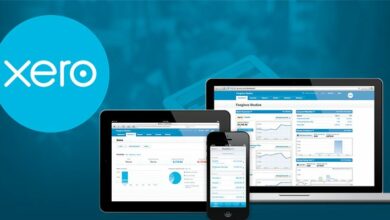How Blockchain Can Revolutionize Your Fleet Management

The success of modern fleet management is anchored on aspects such as cost-effectiveness and innovations, as they play a role in boosting an organization’s profits. Managers strive to maintain effective operation by leveraging innovations such as GPS fleet tracking while adapting means to minimize costs. Fortunately, new technologies like blockchain are emerging as an alternative, offering endless opportunities in fleet management. While blockchain’s total impact on fleet management is yet to be tested fully, there are signs that technology can revolutionize the sector through the following means.
Easy Tracking
Blockchain technology can facilitate secure freight movement transactions between the carrier and receiver. It allows the establishment of a ledger where parties involved in the transportation can track commitments made by the shipper. The system provides the specific time the trucker delivers the freight in real-time in a transparent manner. The technology can also facilitate easy tracking of contaminated shipment to its source.
Easy Record-Keeping
The innovative blockchain technology allows the maintenance of immutable records for the fleet. The information offers specific details about the trucks ranging from maintenance performed to damage incurred throughout its lifetime. Such information can help fleet managers manage the vehicles smartly since they have the tools to make informed decisions.
Elimination of Middlemen
Blockchain technology comes with the smart contract feature. This is a self-executing task through the blockchain and is only fulfilled once the specific set condition is met. In fleet management, smart contracts can eliminate the reliance on unnecessary administrative steps, cutting costs and eliminating room for error. The amount saved through a smart contract can be staggering in the long run.
Security
Digitizing fleet management comes with the risk of cyber attacks that can be detrimental to the business. Most fleet managers have deployed the Internet of Things (IoT) devices to track or maintain freight. Therefore, the introduction of blockchain avails an extra layer of security for these devices through monitoring of data that is exchanged between different products. Interestingly, blockchain allows for the classification of data emanating from the device to assist the business in setting the perfect strategy.
Fraud Detection
Fraud is a common concern for any business, especially where there is human involvement in transactions. However, incorporating blockchain in transactions makes the details open to everyone involved since information cannot be added or deleted. This capability enhances transactions since involved parties can spot wrongdoings like double brokering. Additionally, blockchain can store detailed information like photo IDs and rules for the pick-up and delivery of freight. These fraud precautions minimize the chances of freight theft.
Risks of Blockchain to Be Aware Of
- Lack of adequate laws
- Technology is not tested to full course
- Value transfer risks
- High cost of implementation
Endnote
Although blockchain technology is still undergoing growth, there is no doubt about its capabilities. Consequently, due to the newness of the technology, the number of companies incorporating blockchain in fleet management is still growing. If your business is planning to adopt blockchain, there is a need for further research to determine a solution that best works for you. Overall, using blockchain can help streamline transactions, build trust and reduce disputes. However, keep the limitation in mind since they can act as a guide in selecting the right solution for your needs.



